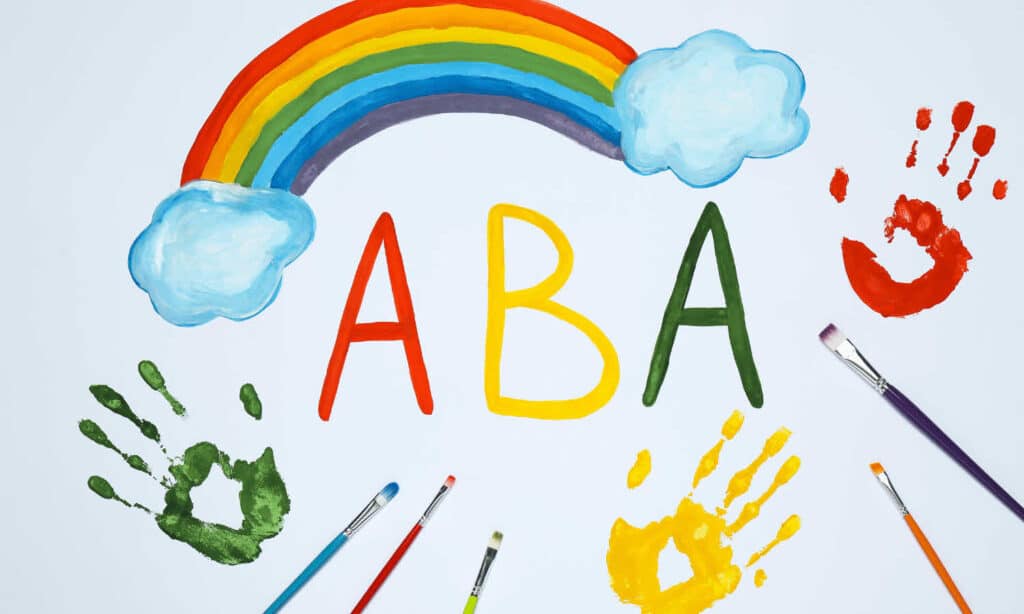
As a developmental-behavioral pediatrician, I’ve long been on a fulfilling journey. One of helping children with developmental disorders achieve their full potential.
Throughout my career, I’ve witnessed the transformative power of evidence-based therapies in the lives of children with developmental disabilities. The key to success is finding therapies that are as compassionate as they are effective.
When researching the best possible treatment for your child, it’s important to consider therapies that are grounded in scientific research. Additionally, they should have a track record of positive outcomes.
Among the various treatment options available, Applied Behavior Analysis (ABA) stands out. It’s a therapy based on the science of learning and behavior. ABA holds great promise for children with Autism Spectrum Disorder and related conditions. It offers effective solutions to improve their quality of life.

WHAT IS APPLIED BEHAVIOR ANALYSIS?
Applied Behavior Analysis (ABA) is a scientific approach to understanding behavior, particularly in children with ASD and developmental disorders. It’s based on a set of principles that focus on how behaviors change or are influenced by the environment.
ABA therapy involves systematically implementing established principles of learning, behavioral strategies, and environmental modifications to improve and teach new behaviors. The ultimate goal is to enhance socially important behaviors, such as academic, social, communication, and daily living skills.
HOW ABA THERAPY WORKS
Applied Behavior Analysis (ABA) therapy aims to bring about positive changes in a child’s behavior. ABA therapists attempt to increase helpful behaviors while reducing harmful ones.
ABA therapy helps children with developmental disorders learn appropriate ways to communicate, socialize, and engage with the world. This is accomplished with an understanding how behavior works and how it is influenced by the environment.
The focus is on promoting behaviors that are beneficial. These include improving language and communication skills, focus, social skills, memory, and academics, while also working to decrease problem behaviors. Through personalized programs, therapists work with children to address their unique needs and achieve meaningful improvements in their daily life.
POSITIVE REINFORCEMENT & ENCOURAGING DESIRED BEHAVIORS
Positive reinforcement plays a crucial role in ABA therapy. When a behavior is followed by something valued or rewarding, the child is more likely to repeat that behavior.
ABA therapists identify specific target behaviors. When the child demonstrates those behaviors successfully, they receive rewards that are meaningful to them. These rewards might include praise, toys, books, videos, access to playgrounds, or other preferred activities.
Positive reinforcement encourages the child to continue using the desired skills or behaviors, leading to meaningful behavior change over time. By reinforcing positive actions, ABA helps children build essential skills and replace undesirable behaviors with more appropriate alternatives.
UNDERSTANDING THE A-B-CS OF BEHAVIOR
An important aspect of any ABA program is understanding the A-B-Cs of behavior: Antecedent, Behavior, and Consequence. This three-step process helps therapists analyze and modify behavior effectively.
- Antecedent: This is what happens right before the target behavior occurs. It can be a verbal command or request, a physical object, lights or sounds, or other environmental triggers. They can come from the environment, another person, or be internal.
- Behavior: This refers to how a person reacts or doesn’t react to a given situation. It can be an action, a spoken response, or any noticeable action.
- Consequence: This is what follows the behavior. It can be positive reinforcement for the desired behavior or no reaction for incorrect or inappropriate responses.
Understanding the A-B-Cs helps therapists identify why a particular behavior is occurring. In addition to identifying why, also how different consequences may influence whether the behavior is likely to happen again. By analyzing and modifying the antecedents and consequences, therapists help children learn more appropriate and effective responses to different situations.
TREATMENT IS TAILORED TO THE INDIVIDUAL
Applied Behavior Analysis therapy is not a one-size-fits-all approach. It’s highly individualized and flexible, tailored to meet the unique needs of each child. ABA programs are designed based on thorough assessments of the child’s strengths, challenges, and specific behavioral goals.
ABA techniques can be adapted to suit the child’s preferences, learning style, and developmental stage. With ongoing monitoring and evaluation, ABA programs evolve over time to support each child’s progress and foster their overall growth and development.
OUR APPROACH
At Sutcliffe Clinic, we take a dedicated and personalized approach to Applied Behavior Analysis (ABA) therapy. We provide high-quality, evidence-based, and individualized treatment plans for children with Autism Spectrum Disorder and associated behavioral challenges. Our mission is to support children and their families on their developmental journey and help them achieve their fullest potential.
A GLIMPSE INTO OUR CLINIC’S ABA THERAPY ENVIRONMENT
Our ABA therapy environment is designed to create a nurturing and supportive space. Our registered behavioral therapists work closely with highly experienced BCBA-certified therapists to ensure the best outcomes for your child.
We believe in a “Whole Child” philosophy. This means we collaborate with a multidisciplinary team of experts specializing in child development, integrative medicine, and nutrition. By focusing on the holistic needs of each child, we can tailor therapy to address individual strengths and challenges effectively.
OUR TEAM’S DEDICATION TO PERSONALIZED CARE AND INDIVIDUAL PROGRESS
Our team is committed to providing personalized care that considers the unique needs and strengths of each child. We believe in empowering parents and caregivers by involving them actively in the therapy process.
This involvement, education, and empowerment of parents are critical for the generalization of learned skills and achieving lasting behavioral change. Through ongoing staff education and training, our clients are able receive the most up-to-date and effective autism treatments available.
Our integrated and interdisciplinary approach allows us to treat a wide range of developmental and behavioral difficulties in children. From ASD to ADHD, anxiety disorders, developmental delays, and more, our team is equipped to support families throughout their journey. We’re committed to providing compassionate care and helping children with autism thrive.

MAKING INFORMED DECISIONS FOR YOUR CHILD’S FUTURE
As parents, it’s essential to make well-informed decisions about our children’s future, especially when it comes to their developmental needs. Applied Behavior Analysis (ABA) therapy is a proven and effective treatment for children with Autism Spectrum Disorder (ASD). Let’s explore the benefits of ABA therapy and why it’s a valuable option to consider for your child.
EMPOWERING PARENTS WITH KNOWLEDGE ABOUT ABA THERAPY
Recent studies have highlighted the positive impact of ABA therapy on children with autism. Early intervention with intensive ABA therapy can lead to long-term improvements in cognitive, adaptive, and social functioning. Moreover, ABA therapy can be implemented in school settings, leading to substantial improvements in communication, socialization, and daily living skills.
Parental involvement in ABA therapy has also been found to enhance the child’s social and communication skills. Understanding these benefits empowers parents to make informed decisions about their child’s treatment.
THE POTENTIAL LONG-TERM BENEFITS OF ABA FOR CHILDREN WITH AUTISM
The ultimate goal of ABA therapy is to help children thrive and develop essential life skills. ABA therapy can improve social skills, enabling children to make connections with others, interact more effectively, and enjoy their childhood. Additionally, it provides parents with customizable techniques to support their child’s unique needs and developmental goals.
Furthermore, ABA enhances independent living skills, helping children become more self-reliant in various aspects of daily life. By setting high expectations and realizing the child’s true potential, it empowers both the children and parents.
CONCLUSION
At the Sutcliffe Clinic, we’re driven by a profound commitment to providing compassionate and effective ABA therapy. We’re dedicated to assisting children and families with developmental and behavioral concerns. We strive to empower families with a multidisciplinary approach, helping them navigate the challenges of raising happy and thriving kids.
We believe in the power of ABA therapy as a transformative tool for unlocking the potential in children with Autism Spectrum Disorder. Through an integrated and personalized approach, we enable each child to reach their full potential.
If you are a parent seeking the best for your child’s development, I encourage you to take the next step in their journey with ABA therapy. The Sutcliffe Clinic offers high-quality assessment, therapy, and family counseling services, embracing collaborative and strength-based interventions. We aim to keep parents informed, empowered, and well-equipped to support their children through every stage of their growth.
Please don’t hesitate to contact us to learn more about how ABA therapy can benefit your child and family. Let my team and I guide you in unlocking your child’s full potential and creating a brighter future together.
Remember, you’re not alone on this journey. We’re here to support and advocate for your child’s well-being every step of the way.
